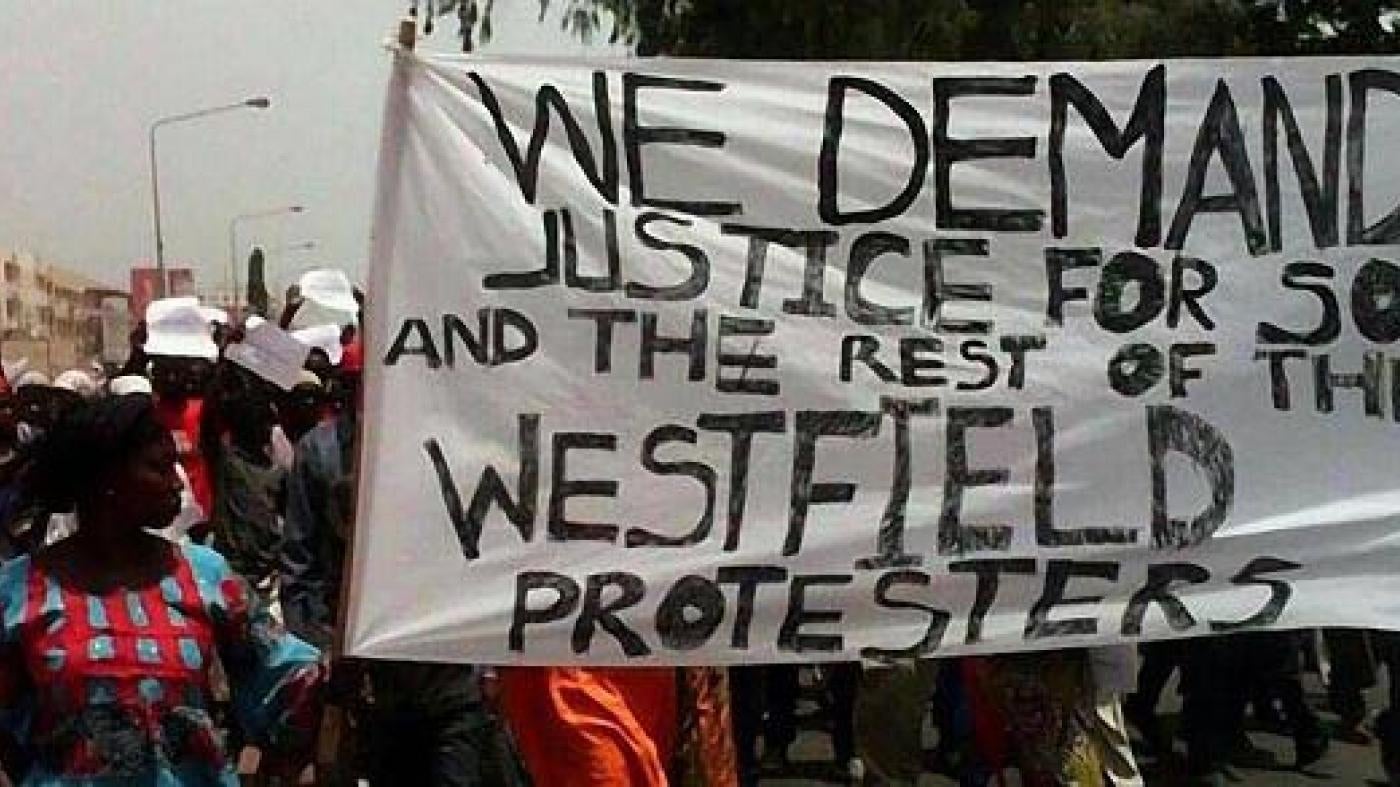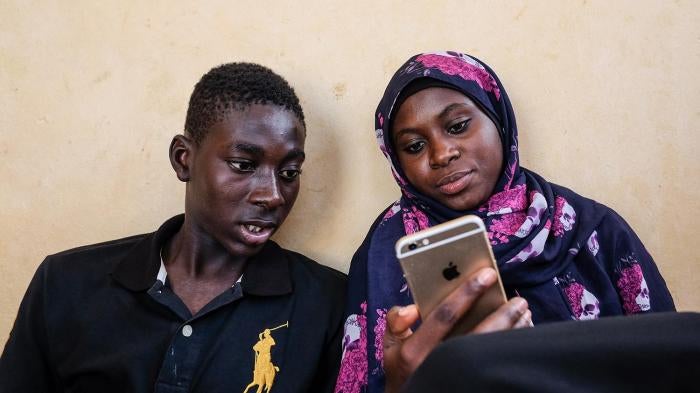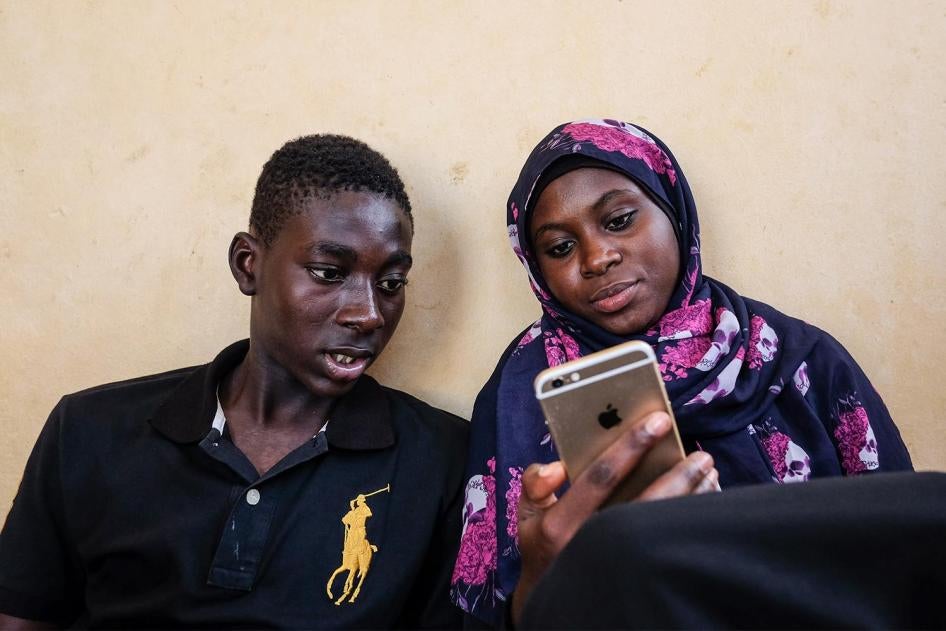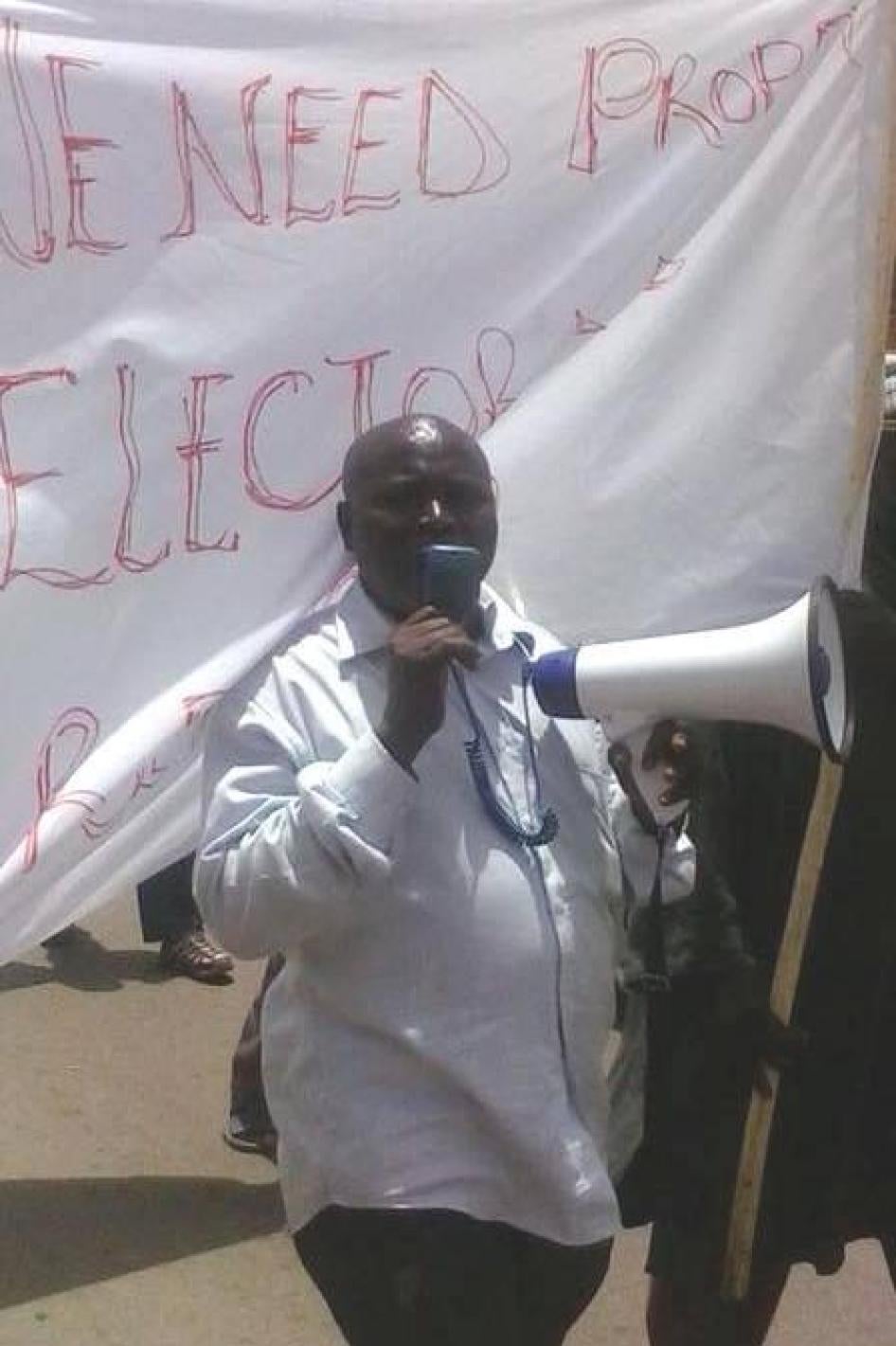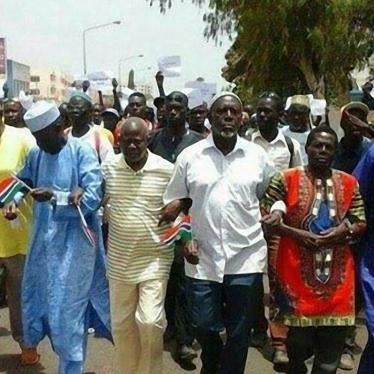More than six months after Solo Sandeng was beaten to death in the custody of Gambia’s National Intelligence Agency (NIA), his family still hasn’t seen the body. They may never see it.
On April 14, 2016, Sandeng, a prominent activist with the opposition United Democratic Party (UDP), led a protest calling for electoral reform in Serrekunda, a suburb of Banjul, the capital. Gambian police arrested Sandeng and more than 20 other demonstrators and bystanders. Many of them were beaten and tortured in NIA custody. Sandeng’s injuries were fatal.
“It is really hard to grieve when you haven’t had the chance to see the body – when no one has seen the body,” said Sandeng’s wife, Nyima. “When you can’t confirm that you have lost a family member, it makes you think, maybe they are still hiding him.”
The couple had nine children. The youngest is 2 years old.
Ahead of Gambia’s scheduled December 1 elections, authorities have arrested more than 90 opposition activists this year for participating in largely peaceful protests. A court has convicted and sentenced 30 opposition members to three-year prison terms. As President Yahya Jammeh runs for re-election for the fifth time, a new Human Rights Watch report, “More Fear Than Fair,” documents the government’s crackdown on the opposition.
Jim Wormington, Human Rights Watch researcher covering West Africa, met Sandeng’s family, now in exile, at their home in July, three months after Sandeng was killed. They fled Gambia after Sandeng’s death, fearing for their safety. They now live in a sparsely furnished compound. They all gathered in a room – some seated on the floor, others on a mattress – for the visit.
When Sandeng’s family heard of his arrest on April 14, they began searching for him. His wife went to the police station where he was initially detained; then Mile 2 prison, where many political prisoners are held; and finally the NIA headquarters, which is a frequent site for torture and incommunicado detention. Everyone denied holding him. Then the family heard about online media reports that Sandeng was in a coma. They tried to ignore the reports, but a friend whose daughter lives in the United States said that her daughter had seen reports that Sandeng had died.
“We couldn’t believe it,” said the couple’s 22-year-old daughter, Fatoumatta. The leader of the UDP confirmed the news to the family in the early morning hours on April 16.
Hours after receiving word of their father’s death, Fatoumatta and her brother Muhammed, 19, marched with UDP leaders to the police station where Sandeng had been detained. They chanted, “Release Solo Sandeng, dead or alive.”
“There was no fear in me that day,” said Fatoumatta, whose gaze had been fixed to the floor. She looked up, and her voice was strong, her expression confident. “All I needed was justice for my father.”
“It’s disheartening to know that your father has been beaten to death and the only thing you can do that day is just protest and ask for his body,” she said.
Officers arrived to stop the protesters, she said. They beat many with batons, and when protesters still didn’t relent, they used teargas to disperse the crowd.
The Sandeng family realized that it was not safe for them to stay in Gambia. Family members of other protesters had been arrested, and they feared they would be next. One police convoy drove up to their gate just half an hour after the protest, and paramilitary officers began monitoring their home. They went to stay with a relative, and one week later, they left Banjul.
“We just thought, we had to get out,” Fatoumatta said. “We never went back to our house.”
The move has been difficult. They have left behind extended family – aunts, uncles, cousins – in Gambia. Some of the children are being home-schooled. They hope to be able to relocate to a better place so that “the family can have a life again,” Fatoumatta said.
The Gambian government did not acknowledge Sandeng’s death or provide any explanation for his disappearance for weeks after he went missing. In an interview on May 29, President Jammeh acknowledged that someone had died in custody, but he dismissed the idea of an investigation: “People die in custody or during interrogations, it’s really common. This time, there is only one dead and they want investigations? No one can tell me what to do in my country.”
Then, on June 22, the government acknowledged the death in a court affidavit, citing the causes of death as “shock” and “respiratory failure.” The family said the government’s failure to confirm Sandeng’s death for so long heightened their grief.
“For that two months, my family had been living in complete suspense,” said Muhammed.
“Some of us have lost hope in a lot of things, and we really need to gain that back,” Fatoumatta said. “[Our father] has always wanted us to be strong, and I promise him, wherever he is, that we are strong like he always wanted.”
Fatoumatta and her siblings also have hope for Gambia. They say it’s changed, in small ways. Earlier, people didn’t dare to utter the president’s name on the street. Now, people protest openly. Still, they acknowledge that Gambia remains a dangerous place to be an opposition activist or journalist.
Though the upcoming election should be an opportunity for Gambians to pass judgment on Jammeh’s rule, the government’s jailing of opposition politicians, the absence of independent media, and the government’s domination of state radio and television leaves little space for a fair election.
“Without change, I don’t see a very bright future for Gambia,” Fatoumatta said.
